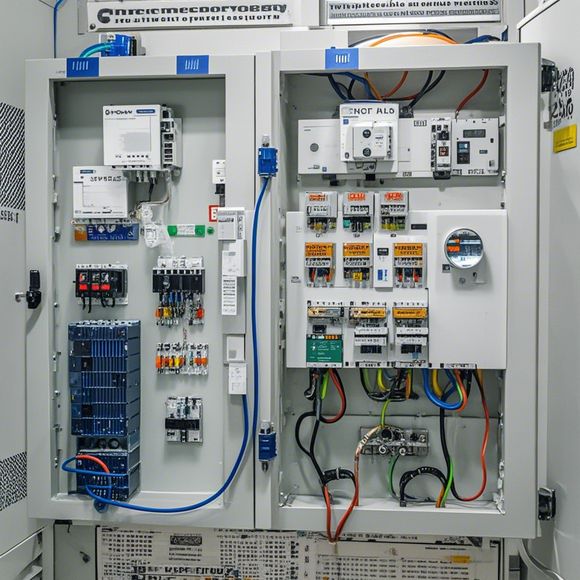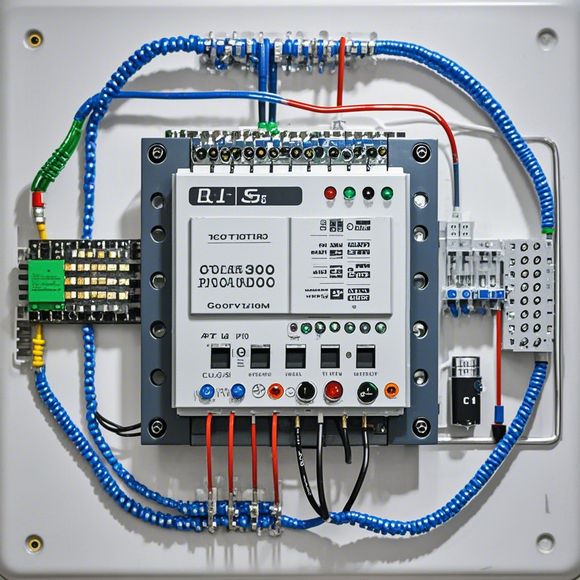PLC Controllers and Their Role in Modern Manufacturing
In the modern manufacturing landscape, PLC (Programmable Logic Controller) controllers play a crucial role. These versatile devices allow for efficient and precise control over various industrial processes, from simple automation tasks to complex systems involving multiple components. By programming these controllers with intricate algorithms and sensor data, manufacturers can achieve increased productivity, reduced downtime, and improved quality control. As technology continues to advance, PLC controllers are becoming more intelligent and capable of adapting to changing circumstances, further enhancing their value within the industry.
In the world of manufacturing, precision and efficiency are key factors that define success. One technology that plays a crucial role in achieving this level of excellence is PLC (Programmable Logic Controller) controllers. These devices work as the brain behind many industrial processes, ensuring that they function seamlessly and reliably, regardless of their complexity.

At the heart of a PLC controller lies a microprocessor or a central processing unit. This component is responsible for interpreting instructions from other parts of the system, making decisions based on data received, and controlling various components within the process. The PLC communicates with various sensors, such as thermocouples, pressure sensors, or even human input, to gather information about the current state of the process. This collected data is then processed by the PLC's internal algorithms to generate appropriate output signals.
The output signals generated by the PLC are what control the various components of the manufacturing process. For example, if the temperature inside a furnace needs to be raised, an instruction will be sent to the PLC to activate a heating element, causing the temperature to increase. The PLC will also monitor the temperature and adjust its output signal accordingly, ensuring that the temperature remains within safe limits.
Another important aspect of PLC controllers is their ability to handle complex algorithms and calculations. Many modern manufacturing processes involve complex calculations that require high levels of accuracy. The PLC can perform these calculations quickly and efficiently, providing the necessary feedback to the manufacturing process to ensure optimal results.
One of the benefits of using PLC controllers is their flexibility. Unlike some traditional mechanical systems, PLC systems can be easily customized to meet the specific needs of individual production lines. For instance, different manufacturers may have different specifications or requirements for a certain part of the manufacturing process. The PLC controller can be programmed to accommodate these differences and provide the necessary control signals for each part of the process.

Another advantage of PLC controllers is their reliability. These devices are designed to withstand high levels of wear and tear, making them ideal for harsh environments where other types of electronic components may not be suitable. Additionally, PLC controllers are often backed by extensive support from manufacturers, ensuring that issues are promptly resolved if they arise.
Despite their many benefits, there are still some challenges associated with using PLC controllers in manufacturing. For example, integrating these systems into existing workflows can be challenging, requiring significant changes to the manufacturing process. Additionally, programming and maintenance of PLC systems can be time-consuming and require specialized knowledge.
Despite these challenges, the advantages of using PLC controllers continue to grow in importance. As automation becomes increasingly critical in the manufacturing industry, PLC controllers are becoming more widely used. They provide the necessary precision and reliability needed to achieve maximum efficiency and productivity in today's fast-paced global marketplace.
In conclusion, PLC controllers play a vital role in modern manufacturing by providing the necessary control signals to regulate and optimize various processes. From simple temperature regulation in a factory to complex assembly line operations, PLC controllers ensure that every manufacturing process runs smoothly and efficiently. As we continue to push the boundaries of innovation and automation, the importance of PLC controllers in manufacturing will only continue to increase.

Content expansion reading:
Articles related to the knowledge points of this article:
PLC Programming for Automation Control in the Manufacturing Industry
How to Use a PLC Controller for Your Business
PLC (Programmable Logic Controller) Control System Basics
The Role of Programmable Logic Controllers (PLCs) in Foreign Trade Operations